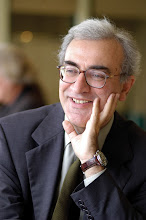
Diogo do Couto
Relendo "The Wealth and Poverty of Nations" de David Landes, encontrei nas páginas 135 e 136 estas linhas:
"Portuguese intellectual shortcomings soon became a byword: thus Diogo do Couto, referring in 1603 to "the meanness and lack of curiosity of this our Portuguese nation"; and Francis Parry, the English envoy at Lisbon in 1670, observing that "the people are so little curious that no man knows more than what is merely necessary for him"; and the 18th century visitor Mary Brearley who remarked that "the bulk of the people were disinclined to independence of thought and, in all but a few instances, too much averse from intellectual activity to question what they had learned."Qualquer pessoa que se dedique a ensinar - coisa algo diferente de "dar aulas" - sabe que os defeitos cruciais dos nossos alunos continuam hoje a ser não a indisciplina e a resistência à autoridade, mas a carência de espírito inquisitivo, a predisposição para aceitar acriticamente o que lhes transmitido e o receio de cultivarem e manifestarem opiniões próprias.
"Through this self-imposed closure, the Portuguese lost competence even in those areas they had once dominated. (...) By 1600, even more by 1700, Portugal had become a backward weak country. (...) Very provocative words [from Dom Luis da Cunha], but right on the mark: if the gains from trade are substantial, they are small compared to trade with ideas."
É antes de mais a superação desses defeitos atávicos que deve, por isso, preocupar a nossa escola.




Sem comentários:
Enviar um comentário